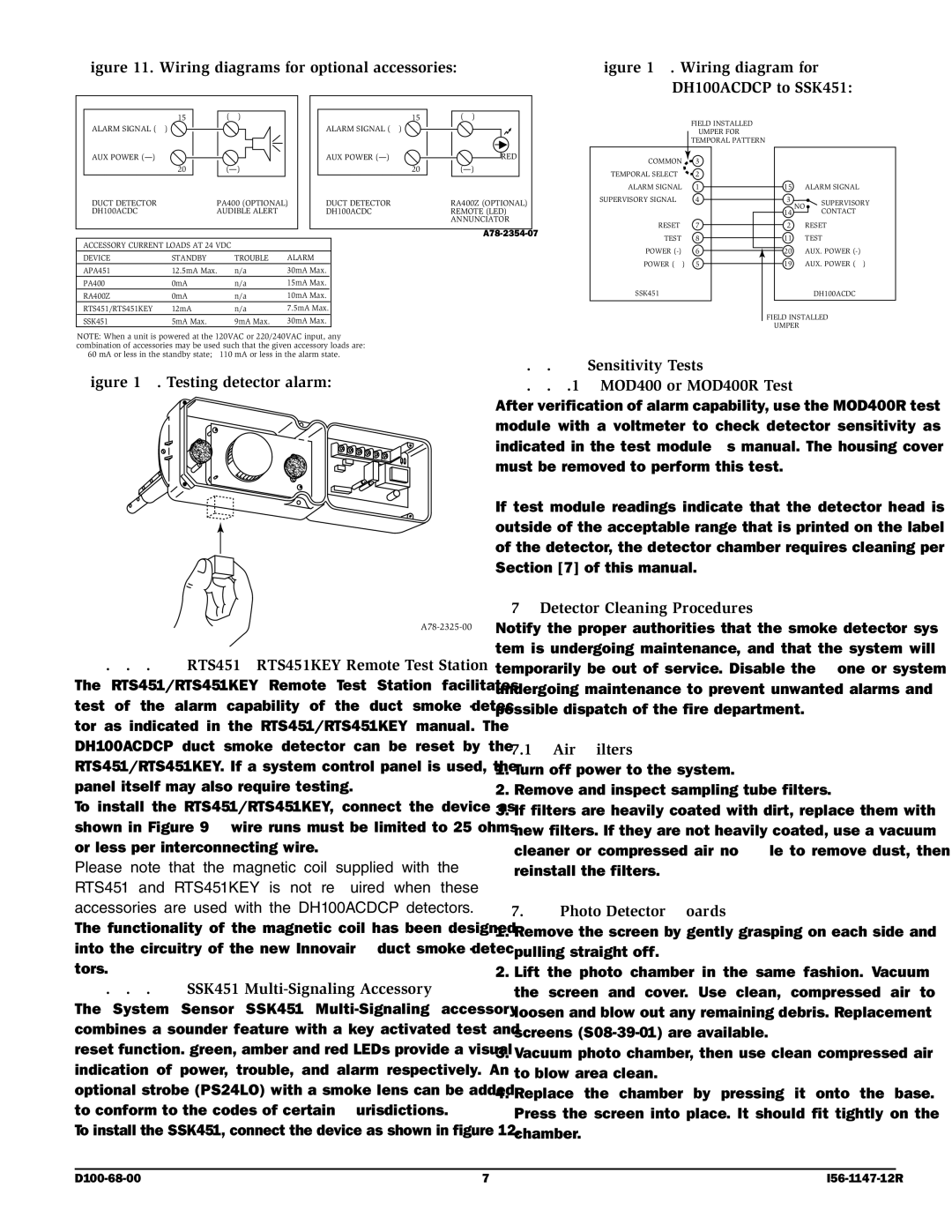DH100ACDCP specifications
The System Sensor DH100ACDCP is a versatile and advanced smoke and heat detection device designed to provide reliable fire safety within various environments. With its sophisticated technology, the DH100ACDCP excels in detecting smoke and elevated temperatures, making it an essential component of fire alarm systems in residential, commercial, and industrial settings.One of the main features of the DH100ACDCP is its dual-sensor technology, which combines both photoelectric and heat detection methods. This feature enhances its ability to detect a wide range of fire types, including smoldering fires that produce dense smoke and fast-flaming fires that generate significant heat. The photoelectric sensor effectively captures smoke particles, while the heat detector activates when it senses a temperature rise beyond a predefined threshold, ensuring comprehensive coverage against fire incidents.
Another significant characteristic of the DH100ACDCP is its intelligent sensing capabilities. The device includes advanced algorithms that allow for real-time analysis of environmental conditions, helping to reduce false alarms. This intelligent approach not only enhances the reliability of the unit but also extends its operational lifespan by minimizing unnecessary activation.
The DH100ACDCP is designed to operate efficiently within a wide temperature range, making it suitable for various applications. Its durability ensures that it can withstand challenging environmental conditions, making it a dependable choice for installations in areas with fluctuating temperatures.
Installation and maintenance of the DH100ACDCP are user-friendly thanks to its compact design and universal mounting options. The device is compatible with a variety of fire alarm control panels, allowing for seamless integration into existing fire safety systems. Additionally, regular maintenance is facilitated by diagnostic features that provide system status updates, ensuring that any issues can be promptly addressed.
Ultimately, the System Sensor DH100ACDCP is engineered for performance and reliability in smoke and heat detection. By incorporating advanced technologies and robust design, it stands out as a crucial component for enhancing fire safety. With its combination of dual-sensor technology, intelligent sensing capabilities, and ease of installation, the DH100ACDCP effectively meets the demands of modern fire detection needs.

